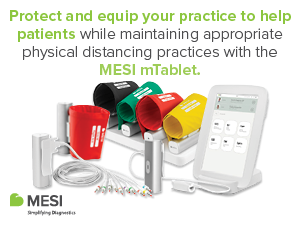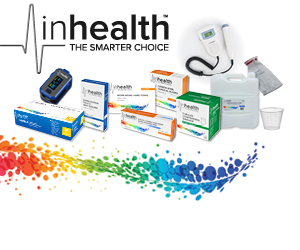-
PRODUCTS
- Anaesthesia & Respiratory
- Baby
- Casting
- Continence Care
-
Diagnostic
- See all Diagnostic
- Accessories
- Bladder Scanner
- Blood Testing
- Breathalyzer
- Cholesterol Testing
- Covid Testing
- Dermatoscope
- Diabetes Monitoring
- Drug Testing
- Endoscopy
- Eye Ear Nose & Throat
- Height Measures and Charts
- INR
- Jars and Containers
- Medical and Surgical Instruments
- Parts and Accessories
- Scales
- Testing
- Urinalysis
- Womens Health
- Ear Irrigation
-
Equipment
- See all Equipment
- "Miscelllaneous, Parts and Accessories"
- Beds
- Blood Collection Chair
- Bracket & Dispensers
- Carts & Trolleys
- Cryosurgery
- Electrosurgery
- Examination Couches & Tables
- Fridge & Freezers
- IV Stands
- Laundry & Cleaning Trolleys
- Play Panels
- Privacy Screens and Curtains
- Stools and Step Ups
- Stools, Bed Screens & IV Stands
- Tens
- Transferring & Patient Handling
- Waste Disposal
- X-Ray Viewers
-
General Consumables
- See all General Consumables
- "Couch Rolls, Protectors & Underpads"
- "Registers, Records and Certificates"
- Bags Assorted
- Batteries
- Blankets and Warmers
- Bracket
- Child Rewards
- Containers
- Cups
- Dental Film Process Products
- Dr Bags
- Ear Piercing
- Feminine Hygiene
- First Aid and Trauma
- Gels and Lubricants
- Identification
- Linen
- Marker
- Miscellaneous
- Ostomy
- Paper and Printing Consumables
- Paper Products
- Parts and Accessories
- Personal Care
- Pill Cutters and Crushers
- Ultrasound Gel
- Wooden Applicators
- Gloves
- Hand & Body Hygiene
-
Infection Prevention & Control
- See all Infection Prevention & Control
- Absorbent Powder
- Bedpans & Urinals
- Caps
- Clinical Sheets
- Containers
- Dispensers
- Eye Protection
- Face Masks
- Hand Hygiene
- Miscellaneous
- Parts & Accessories
- Protective Apparel
- Scrubs
- Spill Kit
- Surface Cleansers & Wipes
- Surgical Packs & Drapes
- Toileting & Waste Disposal
- Tray Liners
- Wipes and Skin Protection
- Intravenous Infusion & Administration
-
Medical & Surgical Instruments
- See all Medical & Surgical Instruments
- Biopsy Punch
- Chiropody Pliers & Podiatry
- Cleaning and Protection
- Curettes
- Dental Syringe
- Dilator
- Ear Irrigation
- Forceps
- Hammer
- Male Health
- Marker
- Miscellaneous
- Nasal Speculum
- Needle Holder
- Pack
- Probe
- Retractor
- Ring Cutter
- Scalpel Handles & Blades
- Scissors
- Skin Hook
- Sucker
- Tuning Forks
- Urology
- Uterine Curettes & Sounds
- Medical Lighting
- Medical Lighting
- Needles & Syringes
- Nutritional Support
- Oral Care
- Patient Monitoring
-
Pharmaceuticals
- See all Pharmaceuticals
- Alimentary
- Anaesthetic
- Analgesia
- Antihistamines
- Cardiovascular
- Central Nervous System
- Creams and Ointments
- Endocrine & Metabolic
- Eye Ear Nose & Throat
- Infections & Infestations
- Miscellaneous
- Musculoskeletal
- Nutrition
- Ointment Products
- Other
- Register
- Respiratory
- Skin
- Solutions
- Rehabilitation & Mobility
- Skin Care
- Sports & Recovery
-
Sterilisation
- See all Sterilisation
- Autoclaves
- Biological Indicators and incubators
- Chemical Indicator Tapes
- Chemical Indicators and Integrators
- Cleansing Solutions & Detergents
- Instrument Protector
- Labels
- Marker
- Paper and Printing Consumables
- Parts & Accessories
- Record Keeping Supplies
- Steam Indicator Sheets and Tests
- Sterilisation Pouches & Rolls
- Towels and Cloths
- Trays and Bowls
- Ultrasonic Cleaners
- Water
- Wraps
- Sutures & Skin Closures
- Urology
- Vaccines
- Wound Care
- Wound Management

Reducing Cardiovascular Disease Incidence with MESI ABPI MD: A Critical Diagnostic Tool
Common Complications of Cardiovascular Disease
- Heart failure: When the heart can no longer pump sufficient blood to meet the body’s needs.
- Heart attack: A blockage in blood flow to the heart caused by a blood clot.
- Stroke: Blocked blood flow to the brain resulting in damage.
- Sudden cardiac arrest: The unexpected cessation of heart function.
- Aneurysm: An abnormal bulge in the wall of a blood vessel, which can occur throughout the circulatory system.
- Peripheral Arterial Disease (PAD), particularly Lower Extremity Arterial Disease (LEAD): This condition causes reduced blood flow to the legs, often leading to pain while walking.
Why Early Detection of PAD is Critical
Many patients with peripheral arterial disease remain undiagnosed for long periods. However, early detection will help to prevent and manage PAD. Regular checkups are a must, especially since 40-60% of patients with PAD also suffer from coronary artery disease or cerebral artery disease.
The ABI test is a good first step to help find PAD early. The American Heart Association (AHA) and the European Society of Cardiology (ESC) have both stated that ABI is a very useful tool in the assessment of heart health risks.
General practitioners and cardiologists should perform an ABI measurement annually for patients with coronary heart disease (CHD) and hypertension to identify PAD early and reduce the risk of severe cardiovascular complications.
How MESI ABPI MD Revolutionises PAD Detection
The PADsense™ algorithm within the MESI ABPI MD device allows for detailed pulse waveform analysis, identifying severe cases of PAD. In cases where ankle pulses are absent or weak, the MESI ABPI MD highlights these issues, ensuring that healthcare professionals can take immediate action for the patient’s vascular health.
The Broader Impact of Cardiovascular Disease
MESI ABPI MD: A Step Towards Reducing Cardiovascular Disease Incidences
Call us today for a FREE MESI ABPI MD Trial on 1800 269 534.
Newsletter
Please enter your email address to subscribe to our newsletters.



